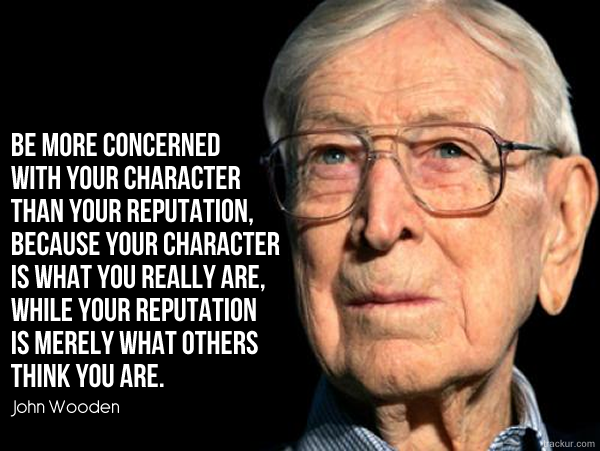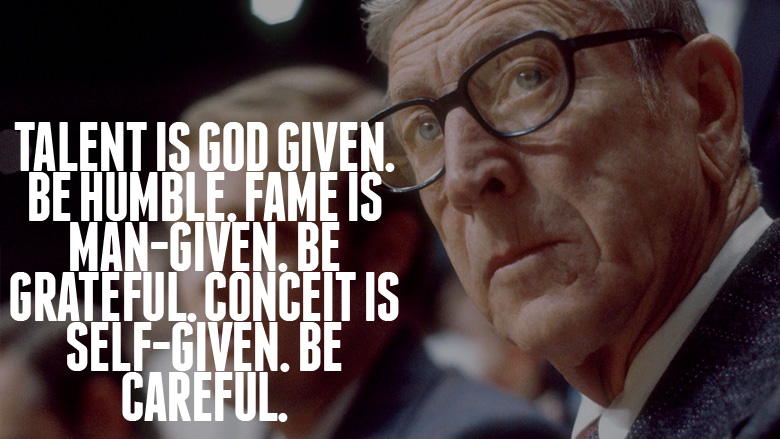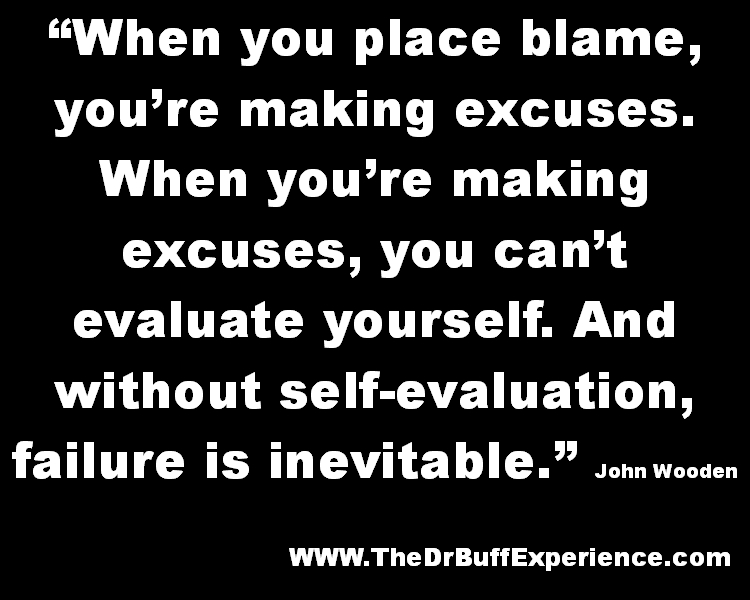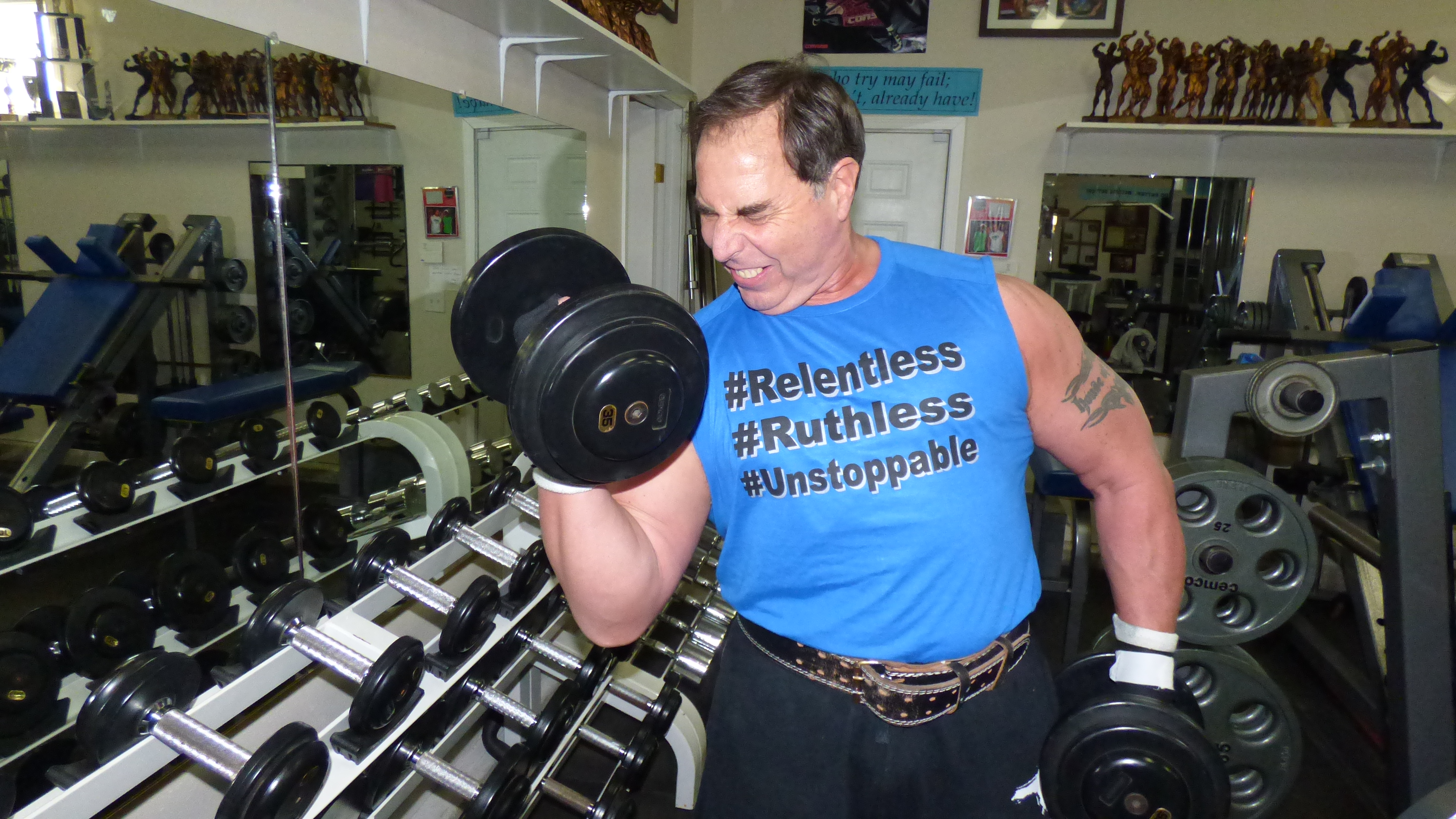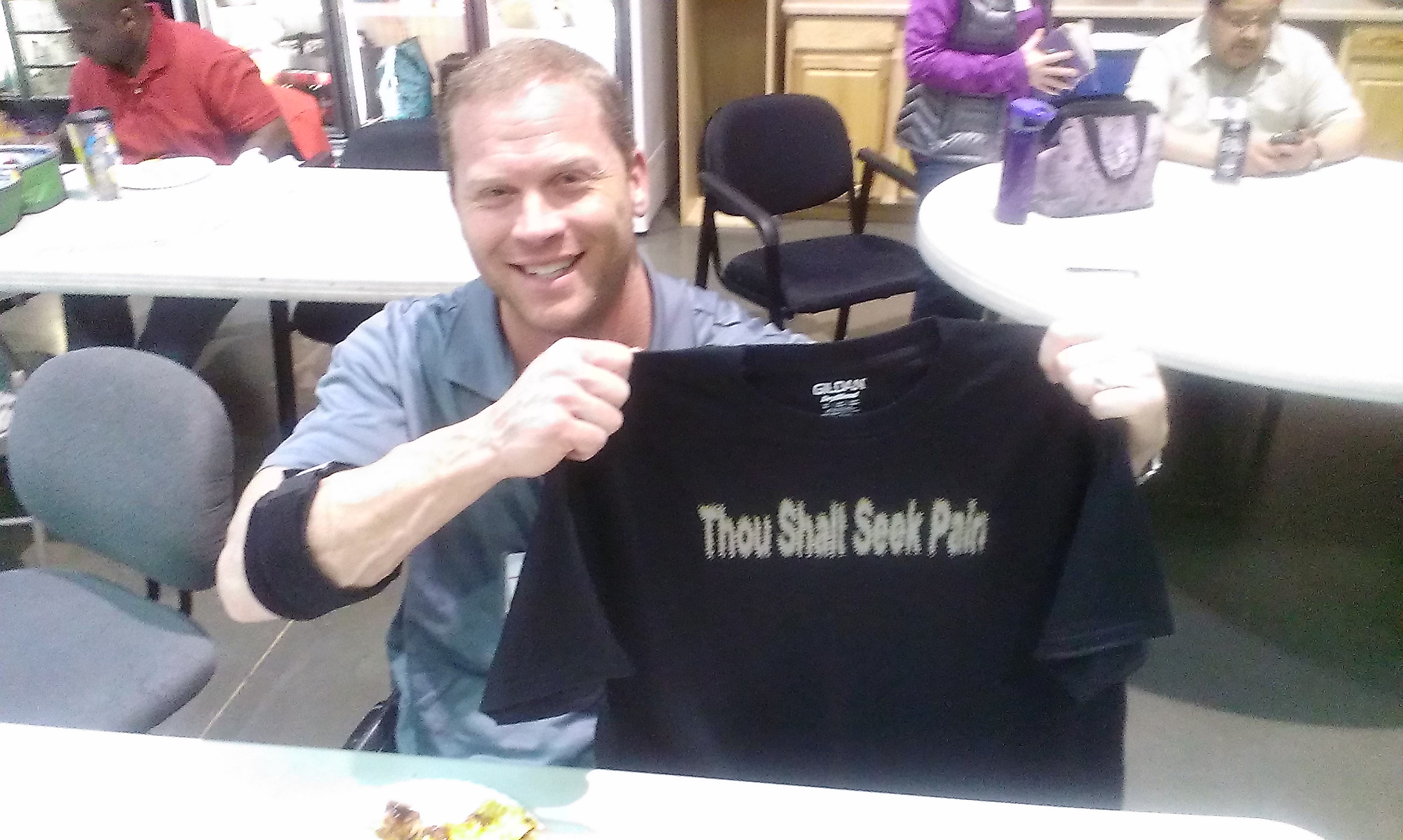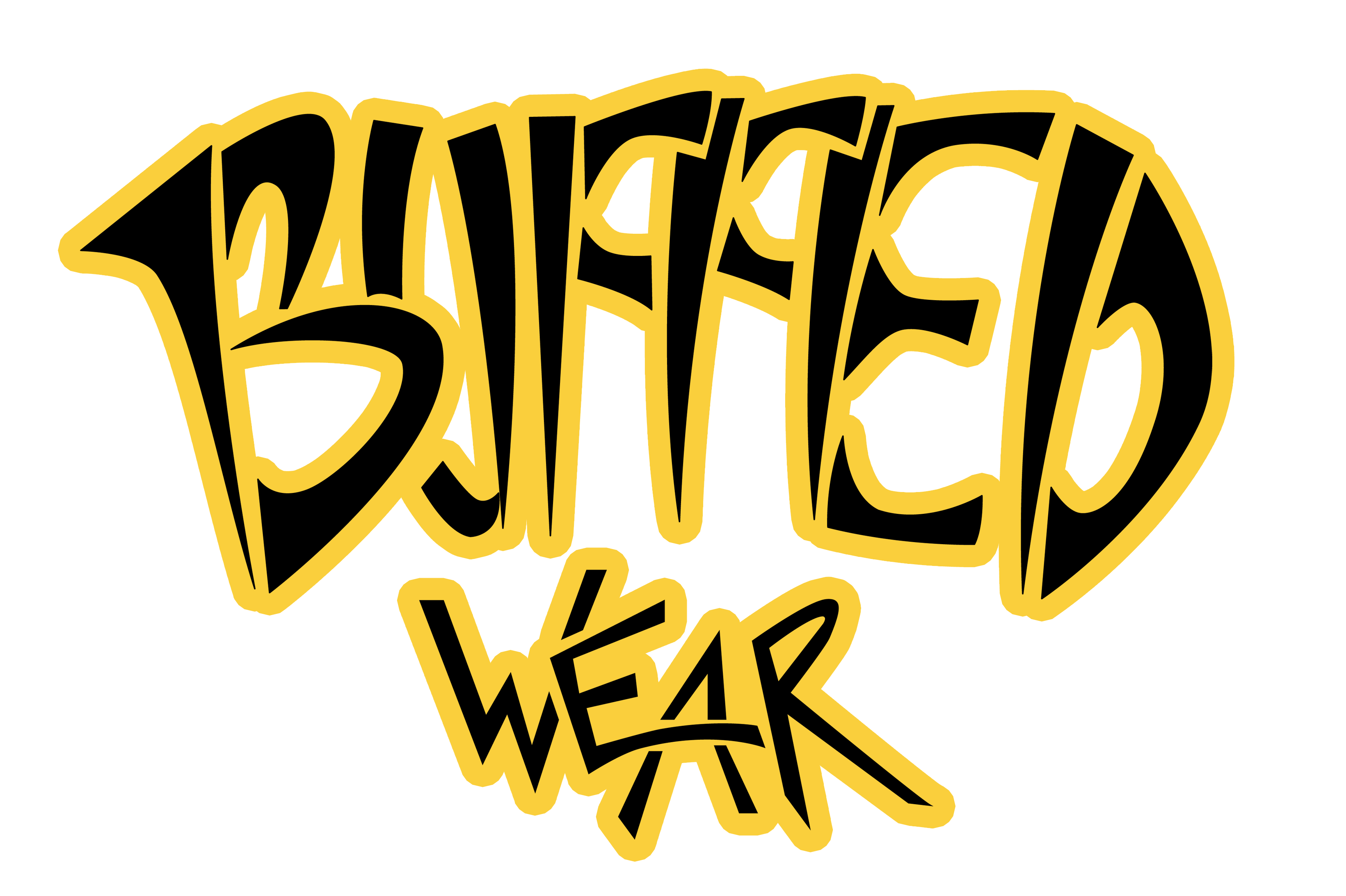Today we’re going to cover a few more points of what makes a good coach/leader/teacher from John Wooden’s book;
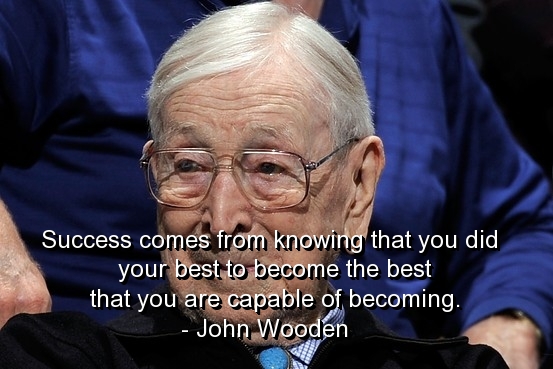 Wooden: A Lifetime Of Observations And Reflections On And Off The Court. Hope you enjoy it.
Wooden: A Lifetime Of Observations And Reflections On And Off The Court. Hope you enjoy it.
Respect
The most essential thing for a leader to have is the respect of those under his or her supervision. It starts with GIVING them respect. [A good Coach] must make it clear that you are working together. Those under your supervision are not working for you but [rather] with you, and you all have a common goal. Remember, you can have respect for a person without necessarily liking that individual. Coach Amos Alonzo Stagg said, “I loved all my players. I didn’t like them all, but I did love them all.” What does that mean?
You love your children, but you may not like some of the things they do. We are instructed, “Love thy neighbor as thyself.” That doesn’t mean we have to like everything our neighbor does. That has nothing to do with our love for them. You must have respect, which is a part of love, for those under your supervision. Then they will do what you ask and more. They’ll go the extra distance, make the extra effort in trying to accomplish the most they can within the framework of the team [or the individual]. If they don’t respect their leader, people just punch the clock in and out. There is no clock-watching when a leader has respect.
Fairness is giving all people the treatment they earn and deserve. It doesn’t mean treating everyone alike. That’s unfair, because everyone doesn’t earn the same treatment. That’s why I didn’t treat all players alike. I didn’t treat Walter Hazzard like I treated Gail Goodrich. I didn’t treat Bill Walton like I treated Keith Wilkes. Contrary to what you might think, it enhanced teamwork, because almost every player I coached knew that he would be treated fairly, that he would be given exactly what he had earned and deserved. They worked harder as a result. It’s true in sports and elsewhere in life.
In all circumstances, whether as a coach, teacher, or business leader, you must begin by determining exactly what is fair. That means you must eliminate prejudice of all types. Can you do it 100percent? Probably not, but you can try. Those under you will recognize that you at least are making a sincere effort. They will realize that you will be wrong on occasion. They must understand, as must you, that you are imperfect. But as long as those under your supervision know that you are trying hard to be fair, you’ll do fine – whether it’s with your children, employees, or athletes.
Walk The Walk
A leader’s most powerful ally is his or her own example. Leaders don’t just talk about doing something; they do it. Sen Nater, a former player at UCLA, told me once, “Coach, you walked the walk.” He meant that I led by example.
Pride As A Motivator
Pride is a better motivator than fear. I never wanted to teach through fear, punishment, or intimidation. Fear may work in the short term to get people to do something, but over the long run I believe person pride is a much greater motivator. It produces far better results that last for a much longer time. Who would I prefer to work with, an individual who has great personal pride or one who is fearful of punishment? That’s an easy choice for me. Remember, pride comes when you give respect.
Abraham Lincoln said, “Most anyone can stand adversity, but to test a person’s character, give him power.” I believe there was a difference between General George S. Patton and General Omar Bradley. General Bradley had a great concern for those under his supervision. H knew what had to be done and he wasn’t looking for self-glory. If you saw the movie Patton, you saw a man who acted as a dictator. While I would want him on my side in time of war, I believe we should lead athletes and associates in a different manner.
There are coaches out there who have won championships with a dictator approach, among them Vince Lombardi and Bobby Knight. I had a different philosophy. I didn’t want to be a dictator to my players or assistant coaches or managers. For me, concern, compassion, and consideration were always priorities of the highest order.
Leaders Listen
Listen to those under your supervision. Really listen. Don’t act as though you’re listening and let it go in one ear and out the other. Faking it is worse than not doing it at all. A good motto is, “Others too, have brains.”
Another Golden Rule
Reward individuals for things well done. It doesn’t have to be in a material way. Sometimes a pat on the back [or an acknowledgement of a job well done] is more meaningful in many ways that something material. A smile. A nod. [Your athletes will work so much harder because of that simple little acknowledgement].
Tune in tomorrow for Part 3 in Coaching, Teaching, and Leading. As always, Be Perfect Today.
Doc
If you liked what you read or think it would be of interest or helpful to others, please share via the social media icons. And don’t forget to subscribe to Doc’s blog to automatically be notified via email of all future writings.



